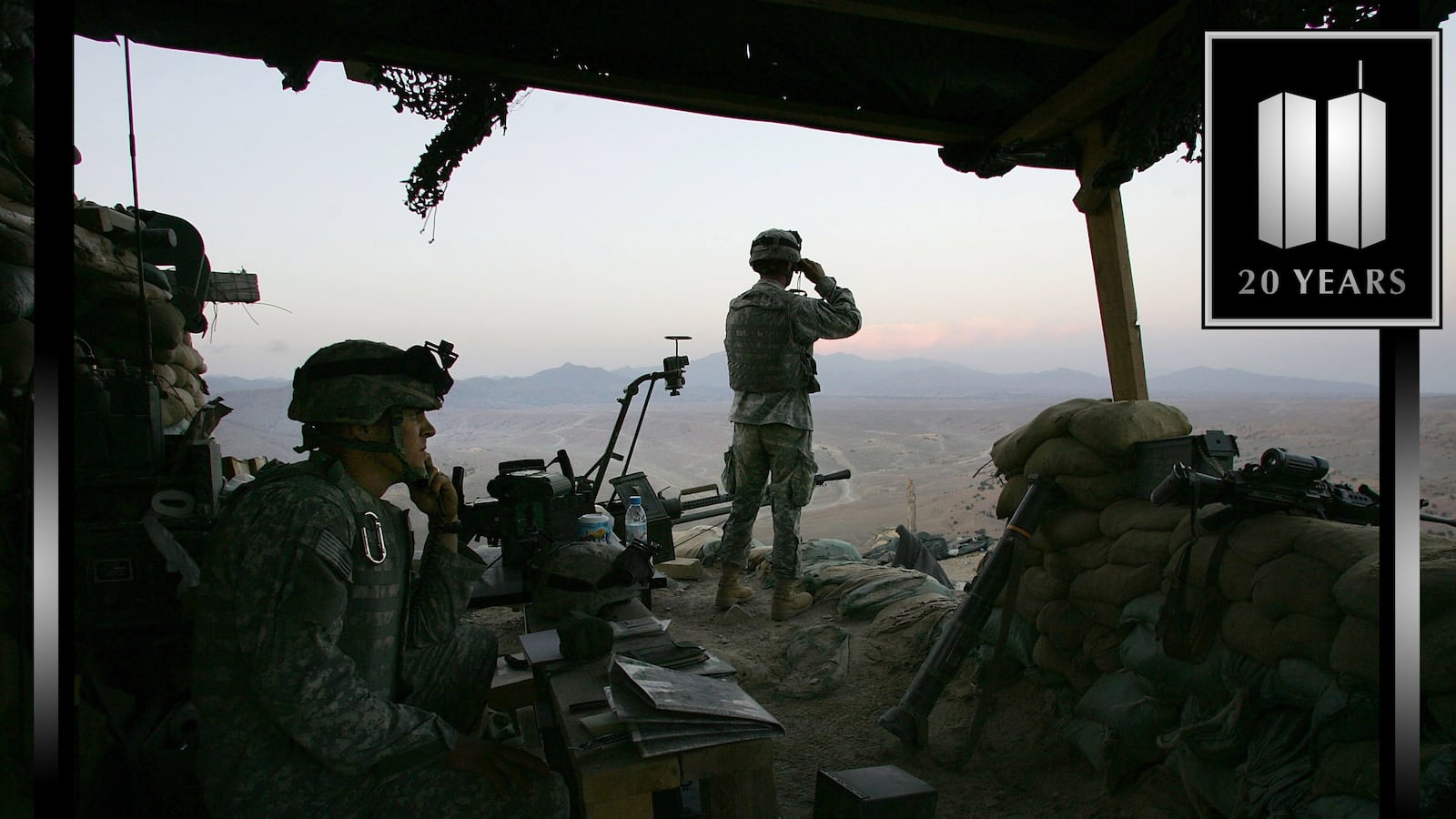KARACHI, Pakistan—“Either you are with us, or you are with the terrorists.”
Those were the words of former President George W. Bush days after the 9/11 terrorist attacks—a warning that marked the beginning of America’s relentless, decades-long “do more” campaign in Pakistan. The country was forced to join the American war as a frontline ally to prove its loyalty to America and its war on terror. Pakistan provided military bases to the U.S. and served as the shortest supply route to Afghanistan for NATO and U.S. forces for 20 years.
But that all changed last year, when the U.S. decided to end its “forever war” in Afghanistan. The Biden administration wanted Pakistani forces to continue to extend logistical support and provide air bases to the U.S. in Pakistan under its new strategy for maintaining its grip on Afghanistan even after the pullout of troops. In June, National Security Adviser Jake Sullivan spoke of “constructive discussions in the military, intelligence... with Pakistan about the future of America's capabilities,” in Afghanistan post-withdrawal, and, as recently as April, President Joe Biden urged Pakistan to “do more” because of the “significant stakes” it holds for the region.
Pakistan’s answer? A whopping, categorical, resounding ‘No’ that effectively ended the country’s frontline role in the U.S-led war on terror.
Pakistan Prime Minister Imran Khan—in an interview with Axios on HBO this summer just weeks after Sullivan’s statements about “constructive talks”—was asked: “Would you allow the American government to have the CIA here in Pakistan to conduct cross-border counterterrorism missions against al Qaeda, ISIS or the Taliban?” Khan flatly responded, “Absolutely not. There is no way we are going to allow any bases, any sort of action from Pakistani territory into Afghanistan. Absolutely not.”
This very public “Fuck, no!” to the U.S. is damaging. It means Washington has lost key bases in a country that has long enabled the U.S to target and monitor the Taliban, al Qaeda, and ISIS in Afghanistan. The shift marks a new chapter in a novel partnership that has been characterized by a set of paradoxes: allegiance and treachery, romance and animosity, trust and betrayal. It also represents the “New Pakistan” doctrine championed by Khan, the country’s international cricket star-turned-prime minister, and his vision for a new, bold U.S. foreign policy approach.
Pakistan paid a heavy price for its frontline role in the U.S. war in Afghanistan, in terms of collateral damage and huge economic losses. The country’s military campaign along with U.S. drone strikes in its tribal areas bordering Afghanistan radicalized local tribesmen, who often resorted to attacking Pakistani soldiers to avenge people killed in U.S. drone strikes. Extremist groups like the Pakistani Taliban killed 70,000 citizens in hundreds of terrorist attacks across the country.
U.S.-Pakistan relations reached a boiling point in May 2011, when Osama bin Laden was killed by special American forces in the Abbottabad district in Pakistan. The event further increased the trust deficit between the two allies. Islamabad was accused of playing a double game and the relationship between the two countries hit its lowest point. Following the bin Laden episode, Washington pressed Islamabad on Afghanistan even harder. Pakistan’s political and military leaders and spy agency, the Inter Services Intelligence (ISI), were lambasted by Western leaders.
When Donald Trump took office, he relied on a familiar approach to the Afghanistan dilemma: Realizing that there was no military solution to America’s longest war, he pressured Pakistan into playing a role in bringing the Taliban to the negotiating table. Islamabad facilitated almost two years of U.S.-Taliban negotiations, culminating in a peace agreement signed last year by the two sides in Doha.
Khan has consistently been contending since 2002 that there is no military solution to the Afghan conflict. The Doha deal did little in terms of bringing stability in Afghanistan, but it did open a window for Khan to plan Pakistan’s exit from the American war. The prime minister would ultimately break away from the usual approach to the U.S. taken by his predecessors, a popular shift after years of pent-up resentment over what many Pakistanis view as repeated violations of their country’s sovereignty by the U.S.
If there’s another example that perfectly exemplifies this shift, it’s the case of Raymond Davis. On Jan. 27, 2011, two Pakistani citizens were shot dead by Davis, a private contractor employed by the CIA. The American killer was arrested by Pakistani authorities, but soon enough, the CIA pressured Islamabad into releasing him. At America’s request, top Pakistani leaders promptly got engaged in working out Davis’s exit plan. The victims’ families were forced to accept ‘blood money’ over the incident, and ultimately, the CIA was successful in freeing and bringing its agent back home.
A decade has passed since the Davis episode. This spring, CIA chief William Burns paid a secret visit to Islamabad, where he asked authorities to allow American drone bases to operate in their territory after the withdrawal of U.S. forces from Afghanistan. The Pakistani officials rejected the CIA chief's demand. Then Burns asked for a meeting with Prime Minister Khan, which was also rejected. The CIA chief was plainly told that only a counterpart meeting between heads of government of the two countries was possible. In other words, only Biden could have a meeting or telephonic conversation with Khan.
There was a time when the top leadership in Islamabad was jolted by U.S. pressure over the arrest of a CIA agent. But now, even the CIA chief is forced to follow the protocol. No special perks, shortcuts, or privileges.



